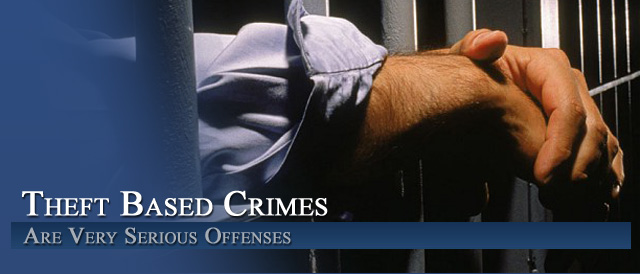




Understanding The Crime of Receiving Stolen Property In Colorado
Previously (Before 2013 – 18-4-410) (Revised After 2013 To 18-4-401)
by H. Michael Steinberg – Colorado Theft Crimes Defense Lawyer – Attorney
Understanding The Crime of Receiving Stolen Property In Colorado – 18-4-410 -18-4-401 – begins with the law itself and the Colorado cases interpreting that law. Theft by Receiving means – essentially – accepting a thing of value when you are aware that it is stolen. The law existed under a separate statute number until August of 2013 – then the law was repealed under 18-4-410 and merged with the main Theft Crime law 18-4-401.
Fencing – also known as “trafficking in stolen property” has always been heavily targeted by law enforcement. The “interruption of the flow of stolen property,” has also always been viewed as stopping the market for stolen goods.. Stopping the market – means impacting the incentive to commit the crime by the original thief.
Proving the crime can be tough for a prosecutor. Knowing conduct – or the “belief” that something is stolen – is – by definition – entirely subjective and difficult to detect or prove making the DA’s burden of proof much tougher than other “knowing” crimes.
Understanding The Crime of Receiving Stolen Property In Colorado – Theft by Receiving
Here is the PRE – 2013 Colorado Crime of Theft By Receiving
18-4-410. Theft by receiving
(1) Except as provided in subsection (6) of this section, a person commits theft by receiving when he receives, retains, loans money by pawn or pledge on, or disposes of anything of value of another, knowing or believing that said thing of value has been stolen, and when he intends to deprive the lawful owner permanently of the use or benefit of the thing of value.
…
[HMS – the following sections give the level of punishment – the penalty for Theft Receiving in Colorado is directly tied to the value of the item that was stolen. All of these valuses were changed by the 2013 law 9 see below) ]
(3) Where the value of the thing involved is less than five hundred dollars, theft by receiving is a class 2 misdemeanor.
(3.5) Where the value of the thing involved is five hundred dollars or more but less than one thousand dollars, theft by receiving is a class 1 misdemeanor.
(4) Where the value of the thing involved is one thousand dollars or more but less than twenty thousand dollars, theft by receiving is a class 4 felony.
(5) Where the value of the thing involved is twenty thousand dollars or more, theft by receiving is a class 3 felony.
(6) When the aggregate value of the thing or things involved is one thousand dollars or more and the person committing theft by receiving is engaged in the business of buying, selling, or otherwise disposing of stolen goods for a profit, theft by receiving is a class 3 felony.
[HMS – Section 7 permits – as does the revised law- and as in almost all theft laws – the aggregation – or combination of crimes to be combined by the DA to constitute felony theft.]
(7) When a person commits theft by receiving twice or more within a period of six months, two or more of the thefts by receiving may be aggregated and charged in a single count, in which event the thefts so aggregated and charged shall constitute a single offense, and, if the aggregate value of the things involved is one thousand dollars or more but less than twenty thousand dollars, it is a class 4 felony; however, if the aggregate value of the things involved is twenty thousand dollars or more, it is a class 3 felony.
Here is the POST 2013 Version Of The Crime of Theft Receiving
The basic crime of theft is defined in the following law:
§ 18-4-401. Theft
(1) A person commits theft when he or she knowingly obtains, retains, or exercises control over anything of value of another without authorization or by threat or deception; or receives, loans money by pawn or pledge on, or disposes of anything of value or belonging to another that he or she knows or believes to have been stolen,
and:
(a) Intends to deprive the other person permanently of the use or benefit of the thing of value;
(b) Knowingly uses, conceals, or abandons the thing of value in such manner as to deprive the other person permanently of its use or benefit;
(c) Uses, conceals, or abandons the thing of value intending that such use, concealment, or abandonment will deprive the other person permanently of its use or benefit;
(d) Demands any consideration to which he or she is not legally entitled as a condition of restoring the thing of value to the other person; or
(e) Knowingly retains the thing of value more than seventy-two hours after the agreed-upon time of return in any lease or hire agreement.
(1.5) For the purposes of this section, a thing of value is that of “another” if anyone other than the defendant has a possessory or proprietary interest therein.
(2) Theft is:
(b) A class 1 petty offense if the value of the thing involved is less than fifty dollars;
(c) A class 3 misdemeanor if the value of the thing involved is fifty dollars or more but less than three hundred dollars;
(d) A class 2 misdemeanor if the value of the thing involved is three hundred dollars or more but less than seven hundred fifty dollars;
(e) A class 1 misdemeanor if the value of the thing involved is seven hundred fifty dollars or more but less than two thousand dollars;
(f) A class 6 felony if the value of the thing involved is two thousand dollars or more but less than five thousand dollars;
(g) A class 5 felony if the value of the thing involved is five thousand dollars or more but less than twenty thousand dollars;
(h) A class 4 felony if the value of the thing involved is twenty thousand dollars or more but less than one hundred thousand dollars;
(i) A class 3 felony if the value of the thing involved is one hundred thousand dollars or more but less than one million dollars; and
(j) A class 2 felony if the value of the thing involved is one million dollars or more.
The Elements Broken Out For The Colorado Crime Of Theft By Receiving
The elements of the crime of theft by receiving are:
1. That the defendant,
2. in the State of Colorado, at or about the date and place charged,
3. [received] [retained] [loaned money by pawn or pledge on] [disposed of] anything of value belonging to another person,
4. knowing or believing that thing of value to be stolen,
5. with intent to permanently deprive the lawful owner of the use or benefit of the thing of value,
and
6. [ Apply the new values for the level of the crime (above)
Other Colorado Laws That Bear On This Crime
18-4-405 – Awards Special Rights To The Victims Of Theft By Receiving Cases
The following section permits the true owner of stolen property to sue – in a civil action – for money damages because of the sale of his or her property.
Rights in stolen property 18-4-405
All property obtained by theft, robbery, or burglary shall be restored to the owner, and no sale, whether in good faith on the part of the purchaser or not, shall divest the owner of his right to such property. The owner may maintain an action not only against the taker thereof but also against any person in whose possession he finds the property.
In any such action, the owner may recover two hundred dollars or three times the amount of the actual damages sustained by him, whichever is greater, and may also recover costs of the action and reasonable attorney fees; but monetary damages and attorney fees shall not be recoverable from a good-faith purchaser or good-faith holder of the property.
The following law permits the conviction of the so called “fence” even if the original thief is never caught and prosecuted (the principle).
18-4-404. Obtaining control over any stolen thing of value – conviction
Every person who obtains control over any stolen thing of value, knowing the thing of value to have been stolen by another, may be tried, convicted, and punished whether or not the principal is charged, tried, or convicted.
Understanding The Crime of Receiving Stolen Property In Colorado – 18-4-410
– Some Colorado Case Law Rules To Help You Further Understand The Crime
Receiving stolen goods is a separate crime – to be distinguished from the original theft of the property.
There must be proof – direct or circumstantial – that the person charged with the crime of receiving stolen property knew the item was stolen. Without such proof – the case must be dismissed.
“Guilty knowledge” on the part of the person charged must be “alleged and proved,” and the burden of establishing knowledge on the part of the defendant is always upon the prosecution.
It is NOT enough to proof a recent and unexplained possession of stolen goods, “to support a conviction of knowingly receiving stolen goods there must be proof of some circumstances showing knowledge of the theft beyond mere proof of recent, unexplained, exclusive possession of the property.”
If the only evidence of the receipt of stolen goods is that the defendant purchased the goods at a price which was not much lower than the fair market price of the goods, it was insufficient to establish guilty knowledge.
Distinguishing The Crime From Basic Theft – You Can’t Be Convicted Of Both
A defendant cannot be convicted of both theft AND theft by receiving when the crimes charged come out of the same “transaction” and also involve the same property. These crimes – theft and theft by receiving – are legally separate and distinct crimes, and the DA may charge the person who stole the property with theft by receiving the property instead of theft. But that person cannot be convicted of both crimes. Therefore – restated – a person who has “actively participated” in a theft cannot be convicted of both the theft and theft by receiving of the stolen property.
Understanding The Crime of Receiving Stolen Property In Colorado – 18-4-410 – The Sting Case
If the crime of Attempted Theft Receiving is charged under § 18-2-101 (1) – it is not legally significant that the goods that are recovered by the police were NOT actually stolen goods or that they had never been stolen. Therefore the defense of ” impossibility ” does not apply to the sting type investigation. Just because the offense could have been committed – the suspect can still be convicted because “the attendant circumstances” were such that he or she believed them to be. Thus “believing” the goods to be stolen is enough to prove the Colorado crime of Attempted Theft by Receiving.
If You Purchase Stolen Goods As A Bona Fide Purchaser – Meaning You Trusted The Seller
A “Victim” of this crime is often what the law calls a “bona fide purchaser.” Title in stolen goods can never transfer – even to a bona fide (or completely innocent) purchase. The title in the property must ” yield to the title of the rightful owner.”
The bona fide purchaser of stolen property wis another victim for purposes of ordering restitution in the case and can collect same from a convicted defendant.
Understanding The Crime of Receiving Stolen Property In Colorado
by Denver Colorado Criminal Defense Lawyer – H. Michael Steinberg
ABOUT THE AUTHOR: H. Michael Steinberg – Email The Author [email protected]
If you are charged with [shoplifting or grand theft], please call our office. The Law Offices of H. Michael Steinberg, in Denver, Colorado, provide criminal defense clients with effective, efficient, intelligent and strong legal advocacy. We can educate you and help you navigate the stressful and complex legal process related to your criminal defense issue.
H. Michael Steinberg, is a Denver, Colorado criminal defense lawyer with over 40 years of day to day courtroom experience – specializing only in Colorado Criminal Law along the Front Range. He will provide you with a free initial case consultation to evaluate your legal issues and to answer your questions with an honest assessment of your options. Remember, it costs NOTHING to discuss your case. So call now for an immediate free phone consultation.
Helping Clients To Make Informed Decisions In the Defense of Colorado Criminal Cases. Colorado Defense Lawyer H. Michael Steinberg provides solid criminal defenses for clients throughout the Front Range of Colorado – including the City and County courts of Adams County, Arapahoe County, City and County of Boulder, City and County of Broomfield, City and County of Denver, Douglas County, El Paso County – Colorado Springs, Gilpin County, Jefferson County, Larimer County, and Weld County,…. and all the other cities and counties of Colorado along the I-25 Corridor… on cases involving … Understanding The Crime of Receiving Stolen Property In Colorado.
Other Articles of Interest:
- Obtaining Control Over Any Stolen Thing of Value 18-4-404 and Theft By Receiving Stolen Property
- Theft of Rental Property 18-4-402 (1)
- Understanding The Colorado Laws Of Embezzlement, Theft and Larceny Part I of II
- Understanding The Colorado Laws Of Embezzlement, Theft and Larceny Part II of II
- A Guide To The Crimes Of Theft Under Colorado Law













